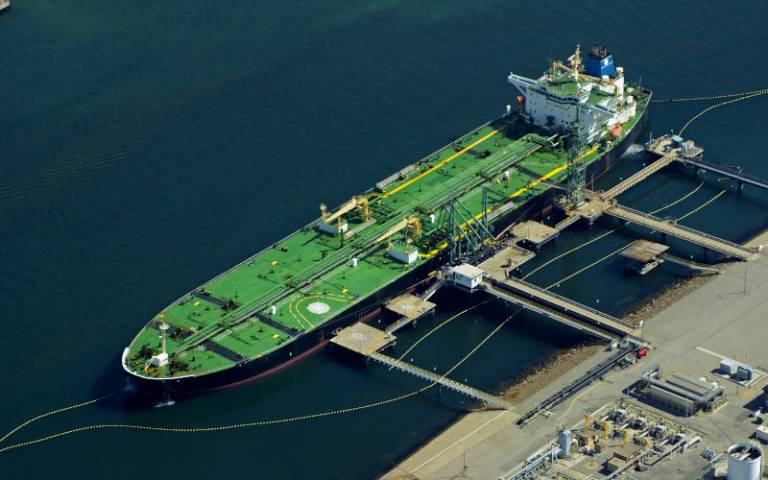UCL academics co-develop green shipping initiative for banks
UCL shipping experts played a key role in developing a framework and principles promoting shipping’s decarbonisation. These allow banks to integrate climate considerations into lending decisions.

8 March 2021
Shipping faces challenge to meet low carbon targets
Following the Paris Agreement on climate change, shipping faces a challenge to align to a new low-carbon global economy. This will require increased energy efficiency in operations, a move to alternative fossil-free fuels, and investment in more energy efficient vessels and technology.
Ship financiers (who provide loan finance to new-build ships) and charterers (who hire vessels on long-term contracts) are key stakeholders in the shipping industry and will play a major role in the industry’s decarbonisation.
To assess the climate transition risk, financiers and charterers need information about their fleet’s performance relative to the global fleet and their competitors.
Climate alignment framework developed
Academics from the Shipping Group at UCL’s Energy Institute developed, with other stakeholders, a framework on reporting and disclosing CO2 emissions and intensity, as required by financiers and charterers. This was made possible in part due to knowledge exchange funding from the Engineering and Physical Sciences Research Council’s (EPSRC) Impact Acceleration Account, distributed by UCL Innovation & Enterprise.
Partner on the project was the Rocky Mountain Institute (formerly the Carbon War Room), a not-for-profit organisation, which has established itself as one of the leading NGOs on decarbonisation in shipping. It has worked with UCL Energy Institute on several projects since 2012.
The development of the framework led to the creation of the Poseidon Principles, a set of governance rules for banks to incorporate climate considerations into their lending decisions. The principles were developed by the Global Maritime Forum with support from the Rocky Mountain Institute and UCL Energy Institute.
Dr Nishatabbas Rehmatulla from UCL Energy Institute was co-investigator on the project. Nish says funding from UCL Innovation & Enterprise was crucial to embedding UCL research into the formulation of the principles. Much of the underlying technical evidence base, and the method for estimating climate alignment, was provided by the UCL team.
“The funding was key to getting where we did with the Poseidon Principles,” said Nish. “We were able to hire an additional resource, early career researcher Dr Vishnu Prakash. His job was to collaborate with the Rocky Mountain Institute, attend workshops globally and help to develop the principles. Had it not been for the funding, we would have struggled to find the capacity or resources for this initiative.”
Eighteen banks sign up to Poseidon Principles
Eighteen major banks, representing US$150 billion in shipping finance, have signed up to the principles so far. These include some of the biggest lenders in shipping such as ABN Amro, Citi, DNB, Société Générale, ING, BNP Paribas and Crédit Agricole Corporate and Investment Bank.
“The banks are now thinking about and including climate risks in their lending portfolios, something that was unheard of before,” said Nish. “This will lead to impact in terms of emissions from ships.
“We (UCL Energy Institute) held the pen on the methodology around climate alignment and whether a ship is aligned or not aligned to climate targets. This is something new that has not been seen before in the sector.”
Principles developed for charterers
Having helped develop the Poseidon Principles for financiers, UCL’s shipping group continues engaging through the Global Maritime Forum to develop principles for charterers, called the Sea Cargo Charter. Again, UCL’s shipping research group is leading on the data and methodology.
Links
Find out more about:
- Poseidon Principles
- funding for knowledge exchange projects
- innovation and enterprise support for UCL staff
- support for organisations to partner with UCL
- UCL Energy Institute
- Rocky Mountain Institute
Photo © R Rusak
 Close
Close

